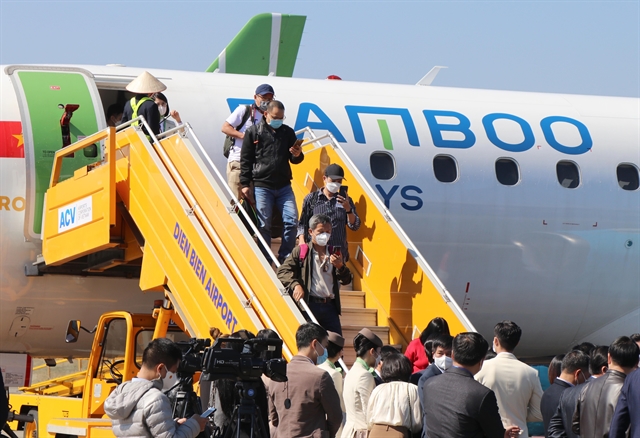Airlines in Viet Nam need new investors to improve their financial position after three years of the pandemic.

Airlines in Viet Nam are attempting to attract new investors to get through the tough times of a capital crunch.
Vietnam Airlines has accumulated a loss of VND34.2 trillion (US$1.4 billion) by late 2022. Its shares are at risk of being delisted from the HCM Stock Exchange for its three consecutive years of unprofitability.
As such, Vietnam Airlines is calling in new investors to implement the restructuring of Pacific Airlines, a subsidiary that Vietnam Airlines holds 98 per cent ownership. The national carrier is also going to sell its stake in the jet fuel distributor Skypec to ease financial woes.
Vietravel Airlines is another airline in search of new investors to raise its charter capital six-fold to VND7.6 trillion ($320 million). The move is part of a plan to push its total investment in projects to nearly VND8.3 trillion ($350 million) by 2030, of which VND2 trillion would come from shareholders and the remainder from new investors.
Vietravel Airlines Chairman Nguyen Quoc Ky revealed that many investors have expressed interest in his airline, but the airline would give priority to domestic ones who are more likely to support it consistently.
Bamboo Airways is also on the lookout for new strategic investors, who would provide the airline with capital to push ahead with its ambitious development plans. Bamboo Airways is the fastest-growing airline back home that owns 30 jets in just four years after its foundation.
Aviation expert Nguyen Thien Tong asserted that airlines in Viet Nam need new investors to improve their financial position after three years of the pandemic. Some airlines have had to liquidate their assets to maintain operations.
"Money is tight for airlines as they have been hard-hit by the pandemic. Some have had to liquidate their assets to stay afloat," said Tong.
The expert has an optimistic outlook for the short term, forecasting that the aviation industry would rebound in 2023. As such, it's time for investors to redirect their capital away from risky real estate and securities to higher-returning aviation.
He also recommended airlines shift their focus to short runways and light jets to cut costs. One possible candidate is the electric jets with a seating capacity of 19 passengers or below, which can travel a distance of thousands of kilometres with minimal fuel costs and requires no flight attendant.
"This type of jet will become popular in many countries in 2028. Airlines in Viet Nam must act quickly to get ahead of the curve," added Tong.
Some experts are not as optimistic as Tong. They are concerned that the global unfavourable conditions, including high inflation, volatile exchange rates, and COVID-19 travel restrictions, would continue to hold back airlines in the short term, putting off new investors.
However, economic expert Le Dang Doanh thinks differently. Doanh said investors would be eager to put their money in the industry regardless of the short-term risks because they see bright prospects for growth in the long term.
To make the industry more attractive to investors, the expert urges the Ministry of Transport to mobilise the resources of the private sector to improve airport facilities. He also calls for administrative reform to facilitate capital flows into the industry.
Nguyen Hai Quang, a lecturer at the Vietnam National University, asserted that airlines need new investors to finance their recovery as they are feeling the pinch of the pandemic.
"Operating in the industry requires large capital to cover aircraft fix costs," said Quang.
Quang opined that the recovery of the domestic aviation industry would hinge on the removal of COVID-19 travel restrictions worldwide.
He also said carriers at home would turn profits as soon as the global aviation sector resumes its pre-pandemic operational levels.
Fuel prices, exchange rates, inflation rates, and global economic growth rates are factors that would have a significant impact on airlines' performance.
The International Air Transport Association forecast that the global aviation sector would operate profitably in 2023 with a profit-to-sales ratio of 0.4 per cent, and return to pre-pandemic profitability in the following years.
Before the pandemic, several foreign companies attempted to partner with domestic airlines to take a portion of the pie but to no avail. Their efforts have been impeded by legal barriers.
One of such barriers stipulates that foreign investors must not own more than 34 per cent of the charter capital of a domestic airline. Additionally, the number of foreign members on its management board must not exceed one-third of the board.
"These stipulations are too much for them," added Quang. — VNS





